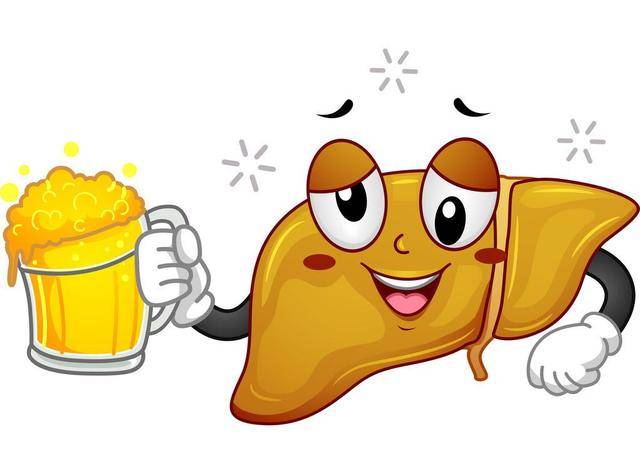The liver “fattens” up, generally related to four habits that are often overlooked, let’s understand
In a normal person, healthy liver tissues contain small amounts of fat, such as triglycerides, phospholipids, glycolipids, and cholesterol, accounting for about 3% to 5% of the liver weight. If there is excessive fat accumulation in the liver, exceeding 5% of the liver weight or when more than 50% of liver cells exhibit fat degeneration histologically, it can be termed as fatty liver, which is what we commonly refer to as the liver “fattening” up.
Due to modern living conditions and changes in lifestyle habits, the phenomenon of liver “fattening” is currently posing a threat to the health of the Chinese population, becoming the second largest liver disease after viral hepatitis, with an increasing incidence rate, and the age of onset is becoming younger. Generally, mild cases of fattening show no external signs, but severe cases have significant effects. Fatty liver is generally a reversible condition, and early diagnosis and timely treatment can lead to recovery. Therefore, it is necessary to understand some modifiable lifestyle factors.
The liver “fattening” is generally related to four habits
1. Long-term alcohol consumption
We know that after alcohol enters the body, 80% of it needs to be metabolized by the liver. Only a small portion is excreted through the skin pores or respiratory tract. Alcohol metabolism in the liver can affect liver cells, especially after heavy drinking, where the liver cannot break down alcohol promptly, causing significant harm. Long-term alcohol consumption may lead to a decrease in liver metabolic function.
A decline in liver function reduces its ability to metabolize fat, making it prone to fat accumulation in the liver. Over time, the liver fattens up day by day.
2. Rapid weight loss
Fasting, excessive dieting for weight loss, or other rapid weight reduction measures can increase fat breakdown in the short term, deplete glutathione in the liver, increase acetaldehyde and lipid peroxides in the liver, damage liver cells, and lead to liver fattening.
Therefore, individuals attempting weight loss should follow a gradual approach; fast weight loss or rapid weight regain can cause the liver to “fatten” up. Therefore, it is essential to cultivate good lifestyle habits and manage weight reasonably.
3. Picky eating or unbalanced diet
As people’s living standards improve, the variety of food choices increases. However, there is a growing trend of picky eating and unbalanced diets. Despite improved living conditions, malnutrition persists. Consuming excessive amounts of fat, sugar, high-protein foods beyond the body’s requirements ultimately converts into stored fat, exacerbating the obesity problem. This is also a significant factor contributing to liver “fattening.”
4. Indulgence and lack of physical activity
Obesity is often closely related to indulgence and lack of physical activity. Excessive obesity in the body results in varying degrees of liver “fattening.” In fact, if the daily nutrient intake and energy expenditure in the body are proportional, excessive fat accumulation does not occur internally. Therefore, maintaining regular exercise and controlling diet are important measures to prevent liver “fattening.” It is imperative to avoid cultivating habits of indulgence and inactivity.
In conclusion, to prevent liver “fattening,” it is crucial to avoid the mentioned behaviors as much as possible. Additionally, try to avoid staying up late, excessive fatigue, excessive use of medications, etc., to prevent liver function decline and maintain the liver’s ability to break down fat to ultimately resolve the issue of liver “fattening.”


